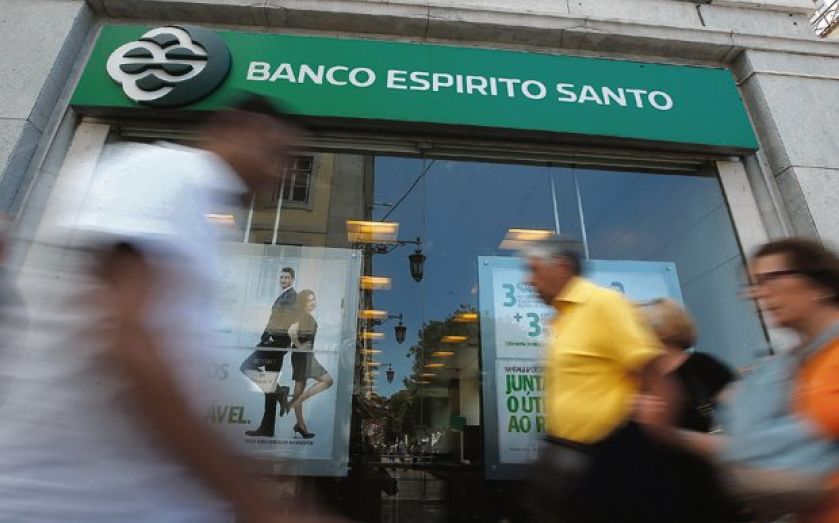Portugal banking crisis rocks markets as Espirito Santo share price plummets

The spectre of a renewed Eurozone crisis reared its head yesterday, hitting shares and bond markets, as fears deepened over the future of Portugal’s biggest listed bank, Espirito Santo.
Investors have lost faith in the troubled lender, fearing its assets are overvalued, while its parent group has missed a debt repayment.
Portugal is barely out of its bailout programme, and investors had hoped the finance sector’s problems were over – but new woes have emerged, routing other banking stocks.
“The event has hit European financials like a torpedo and has revived investors darkest nightmares,” said Saxo Bank’s Peter Garnry.
Banco Espirito Santo’s shares dived 17.89 per cent yesterday before trading was suspended. It had held the markets’ confidence until recently, successfully raising more than €1bn (£794m) by selling new shares in May.
Portugal’s stock market dropped 4.18 per cent yesterday, and Europe’s shares fell 1.64 per cent. The Stoxx index of 600 European banks dipped 1.65 per cent.
The tremors from the unfolding crisis spread across the Atlantic. Despite strong jobs data, the S&P 500 fell as much as one per cent, before closing down 0.4 per cent.
The International Monetary Fund said the Portuguese authorities might need to take action to prop up the bank and the sector. “The Portuguese banking system has been able to endure the crisis without significant disruption, aided by substantial public capital support and extraordinary measures from the European Central Bank,” the IMF said in a statement.
“However, as the Bank of Portugal acknowledges, pockets of vulnerability remain, warranting corrective measures in some cases and intrusive supervision in others.”
The Portuguese government’s borrowing costs jumped. Yields on 10-year bonds rose 0.21 percentage points to 3.99 per cent. Investors also moved out of Spanish bonds, sending its state borrowing costs up seven basis points.
Analysts warned the sudden panic in Portugal could leave investors worried about the state of the finance sectors of the wider Eurozone periphery.
“With Portugal under a three-year troika programme until two months ago, investors are wondering why this was not detected and dealt with earlier,” said Barclays’ Antonio Garcia Pascual. “This event casts some doubt among investors about other latent problems in the system.”